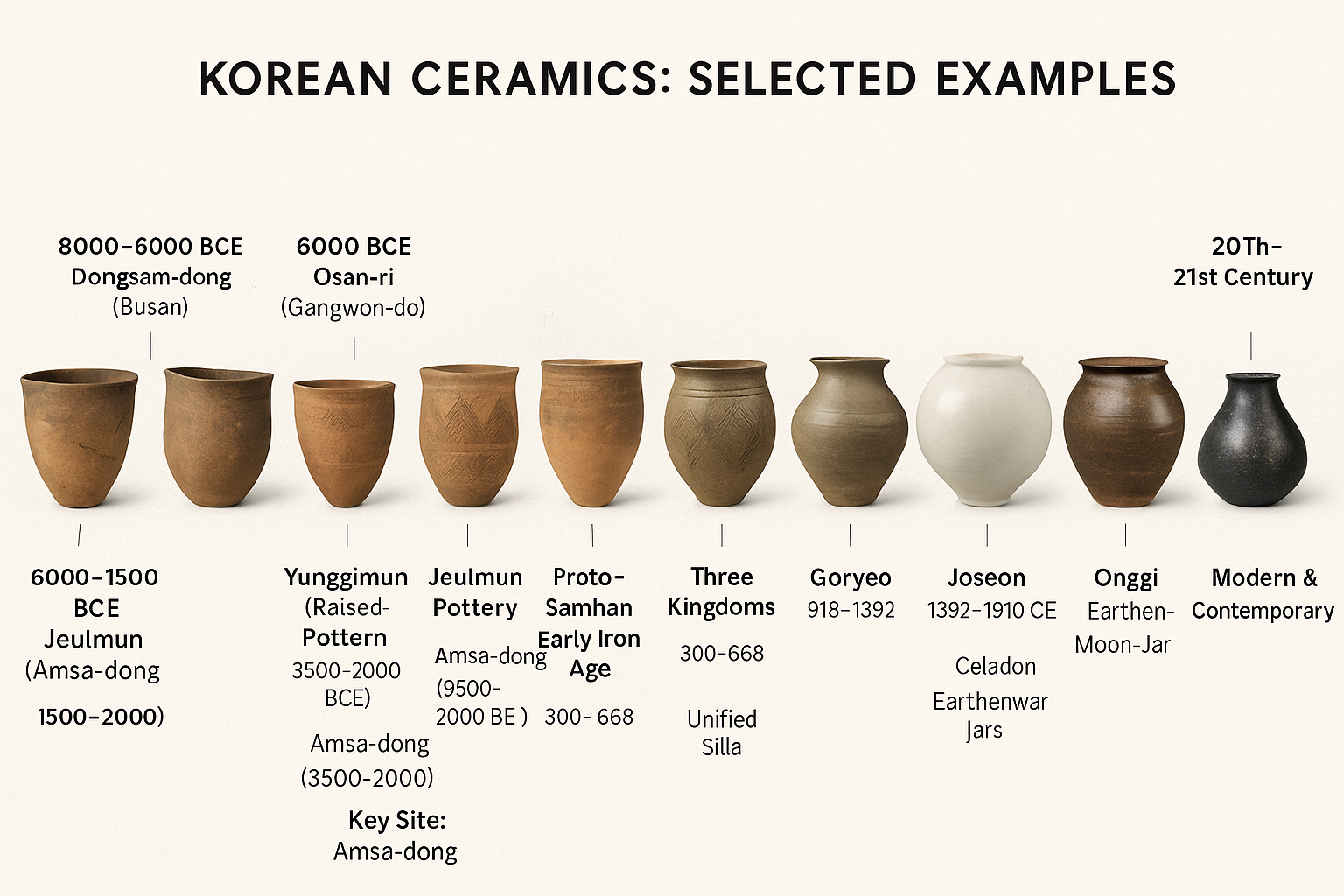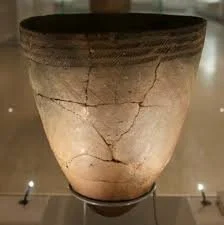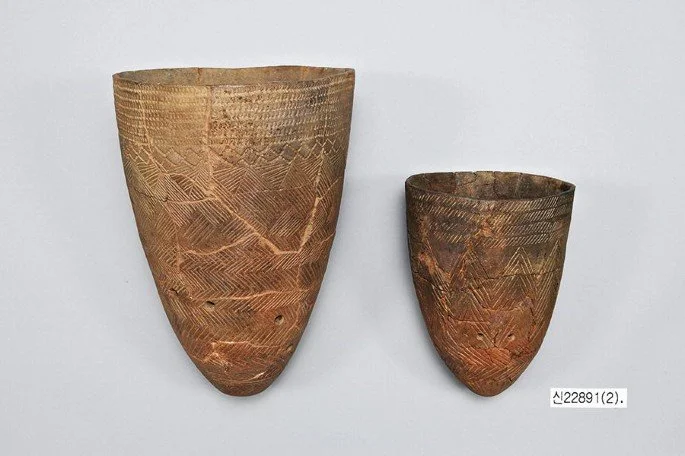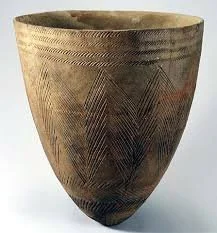Korean Ceramics
8000–6000 BCE
DONGSAM-DONG (Busan)
Oldest pottery in Korea
Hand-built
Plain, unglazed
Pit- or bonfire-fired
Round / conical bottoms
Coastal hunter-gatherer community
→ Beginning of Korea’s ceramic tradition
~6000 BCE
OSAN-RI (Gangwon-do)
Early Neolithic pottery
Simple earthenware
Minimal decoration
Early transition from pre-ceramic to ceramic society
7000–6000 BCE
JANGHEUNG (Gangwon-do)
Early coastal pottery
Plain vessels, thick-walled
Early settlement life
Used for boiling seafood & plants
5000–3000 BCE
YUNGGIMUN (Raised-Pattern Pottery)
First decorative Korean pottery
Applied strips, bumps, dots
Relief patterns (3D texture)
Low-fired, hand-built
→ Early artistic expression
8000–1500 BCE
JEULMUN POTTERY (Comb-Pattern Culture)
(Long era with overlapping phases)
Key Site: AMSA-DONG (Seoul)
3500–2000 BCE
Iconic comb-incised zigzags & waves
Conical-bottom jars
Burnished surfaces
Large Neolithic village
→ First distinct Korean ceramic identity
1500–300 BCE
MUMUN POTTERY
Agricultural transition
Plain, utilitarian pots
Storage jars & cooking vessels
Still low-fired
Early farming communities
300 BCE–300 CE
PROTO–SAMHAN / EARLY IRON AGE
Tech advances begin
First semi-kilns
Early wheel use
Beginning of high-fired gray ware
300–668 CE
THREE KINGDOMS (Goguryeo, Baekje, Silla)
High-fired stoneware emerges
1100–1200°C firing
Incised & stamped decoration
Kiln technology expands
Burial & ritual ware
668–935 CE
UNIFIED SILLA
Stoneware refinement
Standard forms
Early celadon-like glazes
Complex kiln systems
918–1392 CE
GORYEO CELADON
Peak of Korean ceramic artistry
Jade-green celadon (비색)
Sanggam inlay (Korean invention)
Lotus, cranes, clouds
International prestige
1392–1910 CE
JOSEON DYNASTY
Early Joseon
White porcelain (baekja)
Blue-and-white cobalt
Iron-painted ware
Late Joseon
MOON JARS (17th–18th c.)
Buncheong ware
Provincial folk traditions
Continuous from antiquity to now
ONGGI
Korea’s living earthenware
Fermentation jars (kimchi, doenjang)
Paddle-and-anvil construction
Breathable clay
Central to food culture
20th–21st Century
MODERN & CONTEMPORARY CERAMICS
Revival of celadon & buncheong
Modern Moon Jar interpretations
Wood-fired traditions return
Sculptural, conceptual ceramics rise
Global recognition







